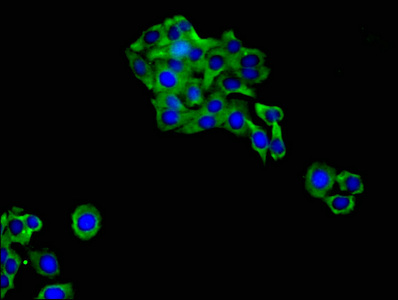Full Product Name
Rabbit anti-Homo sapiens (Human) GJA5 Polyclonal antibody
Alternative Names
GJA5; Gap junction alpha-5 protein; Connexin-40; Cx40
Immunogen
Recombinant Human Gap junction alpha-5 protein (227-358AA)
Immunogen Species
Homo sapiens (Human)
Conjugate
Non-conjugated
The GJA5 Antibody (Product code: CSB-PA009448LA01HU) is Non-conjugated. For GJA5 Antibody with conjugates, please check the following table.
Available Conjugates
| Conjugate |
Product Code |
Product Name |
Application |
| HRP |
CSB-PA009448LB01HU |
GJA5 Antibody, HRP conjugated |
ELISA |
| FITC |
CSB-PA009448LC01HU |
GJA5 Antibody, FITC conjugated |
|
| Biotin |
CSB-PA009448LD01HU |
GJA5 Antibody, Biotin conjugated |
ELISA |
Purification Method
>95%, Protein G purified
Concentration
It differs from different batches. Please contact us to confirm it.
Buffer
Preservative: 0.03% Proclin 300
Constituents: 50% Glycerol, 0.01M PBS, pH 7.4
Tested Applications
ELISA, IHC, IF
Recommended Dilution
| Application |
Recommended Dilution |
| IHC |
1:20-1:200 |
| IF |
1:50-1:200 |
Storage
Upon receipt, store at -20°C or -80°C. Avoid repeated freeze.
Lead Time
Basically, we can dispatch the products out in 1-3 working days after receiving your orders. Delivery time maybe differs from different purchasing way or location, please kindly consult your local distributors for specific delivery time.
Usage
For Research Use Only. Not for use in diagnostic or therapeutic procedures.






